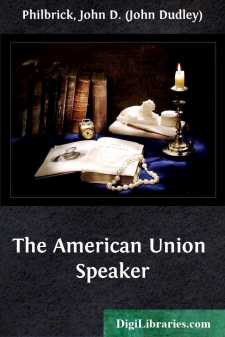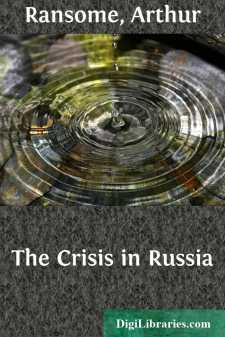Categories
- Antiques & Collectibles 13
- Architecture 36
- Art 48
- Bibles 22
- Biography & Autobiography 813
- Body, Mind & Spirit 142
- Business & Economics 28
- Children's Books 17
- Children's Fiction 14
- Computers 4
- Cooking 94
- Crafts & Hobbies 4
- Drama 346
- Education 46
- Family & Relationships 57
- Fiction 11829
- Games 19
- Gardening 17
- Health & Fitness 34
- History 1377
- House & Home 1
- Humor 147
- Juvenile Fiction 1873
- Juvenile Nonfiction 202
- Language Arts & Disciplines 88
- Law 16
- Literary Collections 686
- Literary Criticism 179
- Mathematics 13
- Medical 41
- Music 40
- Nature 179
- Non-Classifiable 1768
- Performing Arts 7
- Periodicals 1453
- Philosophy 64
- Photography 2
- Poetry 896
- Political Science 203
- Psychology 42
- Reference 154
- Religion 513
- Science 126
- Self-Help 84
- Social Science 81
- Sports & Recreation 34
- Study Aids 3
- Technology & Engineering 59
- Transportation 23
- Travel 463
- True Crime 29
Sort by:
The design of this book is twofold,—to meet the present demand for new selections suited to the spirit of the hour, and also to furnish a choice collection of standard pieces for elocutionary exercises on which time has set its lasting seal. In the execution of this design no pains have been spared in selecting and preparing the best pieces, both new and old. The extracts from recent productions,...
more...
by:
Arthur Ransome
INTRODUCTION THE characteristic of a revolutionary country is that change is a quicker process there than elsewhere. As the revolution recedes into the past the process of change slackens speed. Russia is no longer the dizzying kaleidoscope that it was in 1917. No longer does it change visibly from week to week as it changed in 19l8. Already, to get a clear vision of the direction in which it is...
more...
CHAPTER I. DIDDIE, DUMPS, AND TOT. They were three little sisters, daughters of a Southern planter, and they lived in a big white house on a cotton plantation in Mississippi. The house stood in a grove of cedars and live-oaks, and on one side was a flower-garden, with two summer-houses covered with climbing roses and honeysuckles, where the little girls would often have tea-parties in the pleasant...
more...
by:
Emile Gaboriau
I Vengeance! that is the first, the only thought, when a man finds himself victimized, when his honor and fortune, his present and future, are wrecked by a vile conspiracy! The torment he endures under such circumstances can only be alleviated by the prospect of inflicting them a hundredfold upon his persecutors. And nothing seems impossible at the first moment, when hatred surges in the brain, and the...
more...
by:
Ernest Boyd
It is characteristic of the atmosphere of legend in which Gabriele d'Annunzio has lived that even the authenticity of his name has been disputed. It was said that his real name was Gaetano Rapagnetta, and the curious will find amongst the Letters of James Huneker the boast that he was the first person to reveal to America the fact that d'Annunzio's name was "Rapagnetto"—a...
more...
I.—FIRST, THE CRITICS, AND THEN A WORD ON DICKENS The critics of to-day are suffering from a sort of epidemic of kindness. They have accustomed themselves to the administration of praise in unmeasured doses. They are not, taking them in the mass, critics any longer, but merely professional admirers. They have ceased to be useful to the public, and are becoming dangerous to the interests of letters....
more...
by:
Henry Fielding
Fielding's third great novel has been the subject of much more discordant judgments than either of its forerunners. If we take the period since its appearance as covering four generations, we find the greatest authority in the earliest, Johnson, speaking of it with something more nearly approaching to enthusiasm than he allowed himself in reference to any other work of an author, to whom he was on...
more...
by:
Amy Steedman
The Story of Joseph This is the story of Joseph, the boy who had the strangest and most exciting adventures of any boy who ever lived. Joseph was but a little lad when his mother died. His father, Jacob, had loved that mother more than any one else in the world, so that when she died leaving Joseph and a baby brother, Benjamin, all the love in the father's heart turned to his two little sons. The...
more...
CHAPTER I. INTRODUCTORY. Social organisation. Associations in the lower stages of culture. Consanguinity and Kinship. The Tribe. Kinship groups; totem kins; phratries. The passage from what is commonly termed savagery through barbarism to civilisation is marked by a change in the character of the associations which are almost everywhere a feature of human society. In the lower stages of culture, save...
more...
Eulalia. God spede, & a thousand mine old acqueintÐâÐÐce. xantippa. xan. As many agayn, my dere hert. Eulalia. me semets ye ar warÐâвÐÑ much faire now of late. Eula. Saye you so? gyue you me a mocke at the first dash. xan. Nay veryly but I take you so. Eula. Happely mi new gown maketh me to loke fayrer then I sholde doe. xan. Sothe you saye, I haue not sene a mynioner...
more...











